This “Limited Edition” Blu-ray from Radiance Films is currently available for purchase.
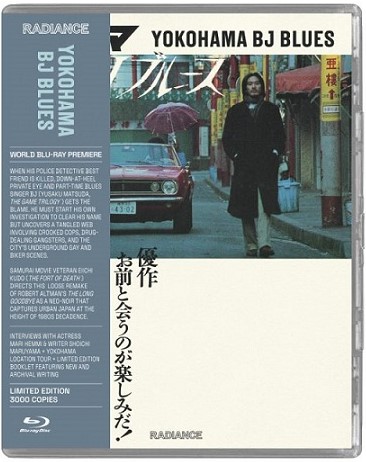
As the year comes to an end, I’ve realized that it has been a great privilege catching up with amazing international fare thanks to various boutique Blu-ray and 4K Ultra HD distributors. It truly has been an education and one of the great companies out there is Radiance Films. Once again, they have recently released another notable cult title on Blu-ray that has been hard to get in this part of the world. As with all of their discs, they have done their best to give viewers the best transfer possible, as well as include interesting bonus material that sets up the importance of each movie and why it is so beloved.
Yokohama BJ Blues is a Japanese film that falls into this category. It’s an eccentric and odd yet fascinating movie set in a gritty area outside Tokyo, Japan (at least, it was a grimy place back in the day). The movie is notable for its unusual mix of detective movie elements and music. While the central mystery does keep the plot moving, this story relies more on atmosphere, as well as its charismatic leading man.
BJ (Yusaku Matsuda) is a nightclub blues singer struggling to make ends meet. In fact, in between gigs he works as a private investigator. Early on, a mother asks him to find her grown son, who disappeared after moving to the area. BJ very quickly finds the figure working for an underworld boss and is told that the recruit is not interested in returning to a normal life. Not long after, a police investigator friend announces that he is going to quit the force. In the middle of a discussion with the lead, the man is assassinated. BJ is determined to find out who killed his buddy and why. Of course, he is considered the main murder suspect by the police. The trail leads him through the music world and criminal underground. As events progress, the lead also discovers that there may be a loose connection between his two cases.
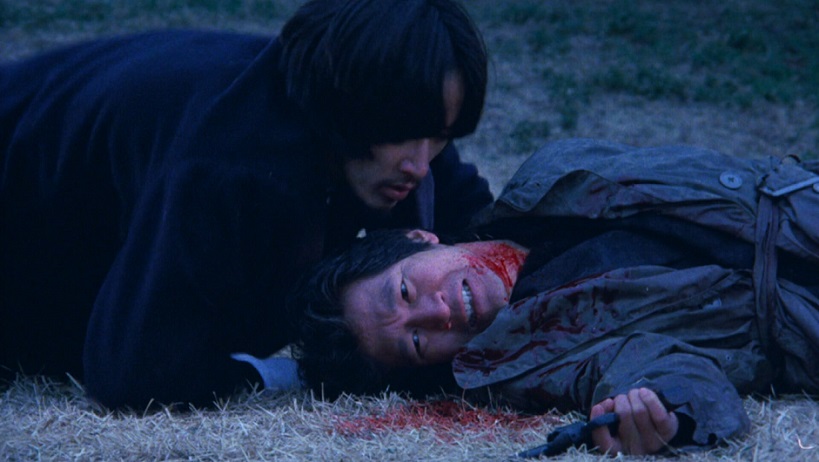
As mentioned, this is really all about mood rather than the motivations of the criminal acts. The Yokohama backdrop is visually interesting, as are the breaks into clubs and performances by the lead (which sometimes tie into the mood and feeling of the tale being told). As you might expect, Matsuda is a charismatic lead and it’s entertaining to see the downtrodden figure traverse this unique environment. He also has a good voice and appears to be actually performing the songs in the film. There are impressive shots of the region and amusingly odd exchanges between the characters. It’ll also make you think twice before visiting an eye care specialist. And while this is a low-key effort that doesn’t always try to excite or thrill, everything is ultimately made clear and the final chase and showdown in the Chinatown district is memorable.
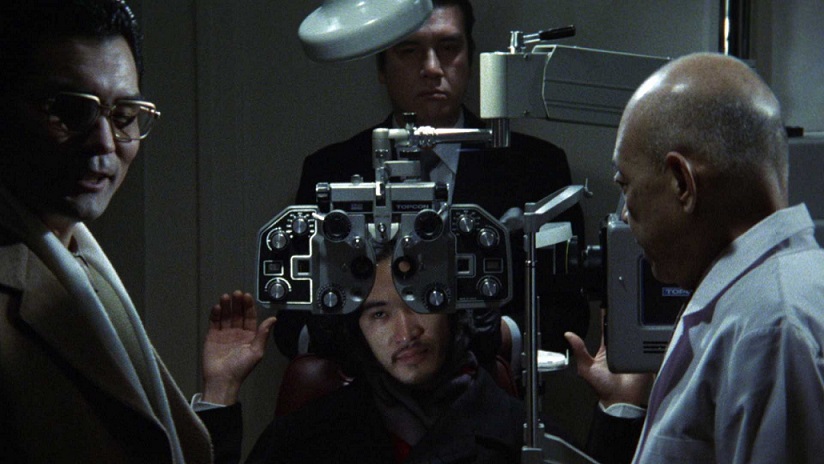
Another interesting element is that this early 80s picture does feature a lot of gay characters. The main gangster makes no apologies for having relationships with and lusting after some of his employees, including the young figure whom BJ is initially out to find. The lead’s brotherly affection for the young character is interesting to see as well as his concern for their safety. Overall, this is an effective thriller with enough unique elements to make it stand apart from many of its contemporaries.
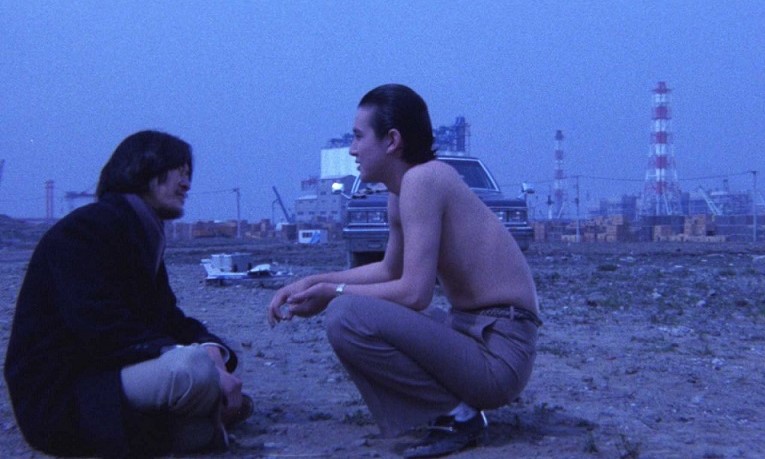
The image quality here is, admittedly, not reference material, but it’s still as good as this film is going to look. There is a fair amount of grain present, but that is simply because so much of the film is shot on the streets at night and in many cases lit with what appears to be a lot of natural sources. Sure, there is more lighting than just what’s present on the streets, but the intent here is to capture an authentic and gritty look for the area, and the film accomplishes this easily. The image is representative of the intent of the filmmakers.
There are several interesting bonuses that help give context to the picture, how it came about, and what it was trying to accomplish. There is a lengthy discussion with the screenwriter on the project. He recalls working on the TV series The Detective Story that made Yusaku Matsuda a star and befriending him. It seems that just about every studio wanted to make a picture with the extremely popular actor and thus, he had the power to dictate what kind of movie he wanted to appear in. The two talked about various films they liked, and both were impressed by the Robert Altman picture The Long Goodbye and the main detective characters from that title.
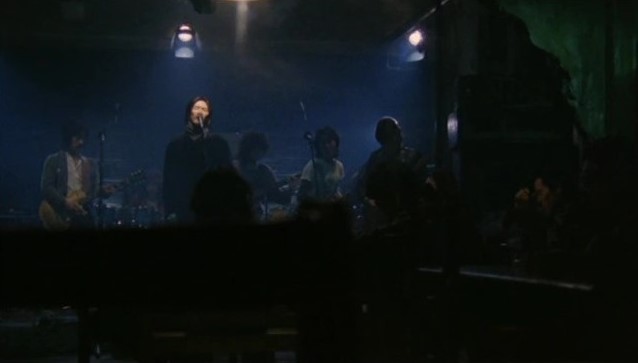
When it came time to put pen to paper, they incorporated some elements and also put their own spin on the story. He and Matsuda remained friends and worked together on several projects, but the writer thinks that Yokohama BJ Blues was their most effective collaboration. The writer isn’t sure about the gay subtext in the film, but that could easily have been an addition made by the director.
Co-star Mari Hemmi is also interviewed for the disc. She plays the widow of the police officer who is murdered, and talks about being cast, as well as her association with the music industry. The performer remembers that, upon first meeting star Matsuda, she was a bit intimidated and found him distant. Just after, they crossed paths at the hotel. She had found a scarf he left behind and he was very sweet and appreciative of it being returned. This suggested to her that he was already in character at the meeting and that the front was a bit of a façade. The actress notes that they got along well and that he was nice to work with.
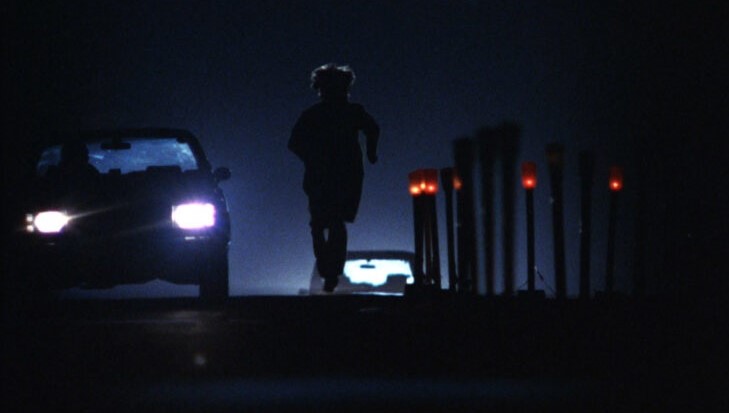
There is also a fun location tour with a Yokohama expert who visits the film’s famous sites and notes how they have changed. While some spots can still be easily recognized, it is clear that the area has become more upscale and fashionable since the early 80s.
This disc also includes a trailer. You’ll also get a booklet with lots of writing on the film by a Toei Studios expert and an archival review of the movie. It all comes together nicely and makes for an intriguing presentation and informative background information on a movie I had little knowledge about prior to this release.
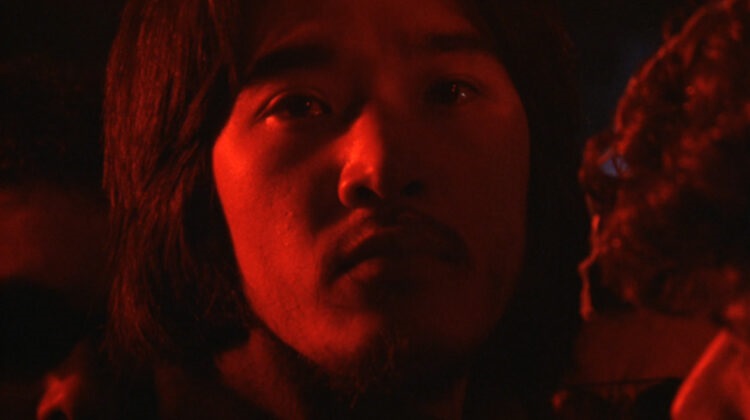
Matsuda would have a long career before his untimely passing at the age of 40 due to cancer. He appeared in well-regarded Japanese films like The Family Game and made a big impression with western audiences in one of his last roles in the 1989 Ridley Scott feature Black Rain. Yokohama BJ Blues offers viewers in this part of the world an opportunity to check out the actor in an early and impressive leading role. It’s a disc worth picking up.


